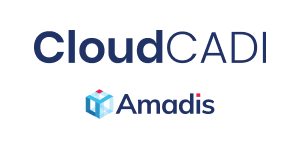
Overview

Product video
CloudCADI is a unified, multicloud FinOps platform designed to monitor, optimize, and govern cloud spend across IaaS, PaaS, and SaaS environments.
Cloud-native: CloudCADI operates within the customer's cloud environment without data egress, reducing security risks and deployment complexity.
Self-service Analytics: Unified dashboard provides detailed visibility into cost, utilization, and performance across all connected cloud environments in a single pane.
Actionable Recommendations: Context-aware, explainable optimization signals that help teams reduce cloud waste without production impact.
Externalized Business Rule Engine: Enables organizations to define and customize optimization and governance rules based on business, financial, and operational requirements across clouds.
End-to-End Automation: Seamlessly onboard your Cloud Environments and integrate ticketing and collaboration tools such as ServiceNow and Slack to automate workflows and remediation actions.
Role-based Analytics: Delivers persona-based dashboards and insights for Finance, Engineering, and Leadership teams.
Alerts: Configurable alerts and reporting provide continuous awareness of cost inefficiencies and signals helping teams act before costs escalate.
AmBlue Agent: Our Intelligent Cloud FinOps agent facilitates natural language optimization for all stakeholders.
Highlights
- **Achieve Extended Cost-savings**: CloudCADI helps organizations unlock cost savings beyond native cloud provider platform recommendations by applying cross-cloud optimization intelligence and policy-driven governance across multiple cloud environments.
- **Cloud-native and Non-Intrusive**: CloudCADI leverages secure, non-intrusive, cloud-native mechanisms within each cloud environment to deliver actionable insights without deploying external agents, ensuring security, compliance, and operational simplicity across clouds, saving your Egress Costs.
- **Actionable Recommendations with Simulation Engine**: CloudCADI's intelligent recommendation engine delivers actionable optimization insights across compute, storage, and managed services, along with simulation capabilities to assess cost and performance impact before implementing changes.
Details
Introducing multi-product solutions
You can now purchase comprehensive solutions tailored to use cases and industries.

Features and programs
Financing for AWS Marketplace purchases

Pricing
- Monthly subscription
- $5,000.00/month
Vendor refund policy
We do not currently support refunds, but you can cancel at any time.
How can we make this page better?

Legal
Vendor terms and conditions
Content disclaimer
Delivery details
CloudCADI
This CloudFormation template will deploy 1 EC2 Instance, 1 RDS(Postgres) and Lambda functions
CloudFormation Template (CFT)
AWS CloudFormation templates are JSON or YAML-formatted text files that simplify provisioning and management on AWS. The templates describe the service or application architecture you want to deploy, and AWS CloudFormation uses those templates to provision and configure the required services (such as Amazon EC2 instances or Amazon RDS DB instances). The deployed application and associated resources are called a "stack."
Version release notes
v2
Additional details
Usage instructions
To login to the application:
- Once the CloudFormation stack has been created successfully, go to the 'Outputs' tab. This'll show the PublicIP. click on the PublicIP to view the application.
- Click the Signup button to create a user account. Enter your username and password.
- It'll redirect to the login page. You can access the application by logging in with your username and password
- The user must register the account with valid AWS account ID
To connect to SSH:
- Create an EC2 Key-pair in console
- Use the default Username(ec2-user) to connect to SSH
For more information, visit our Product Documentation listed at https://awsonboarding.cloudcadi.com/
Resources
Vendor resources
Support
Vendor support
AWS infrastructure support
AWS Support is a one-on-one, fast-response support channel that is staffed 24x7x365 with experienced and technical support engineers. The service helps customers of all sizes and technical abilities to successfully utilize the products and features provided by Amazon Web Services.